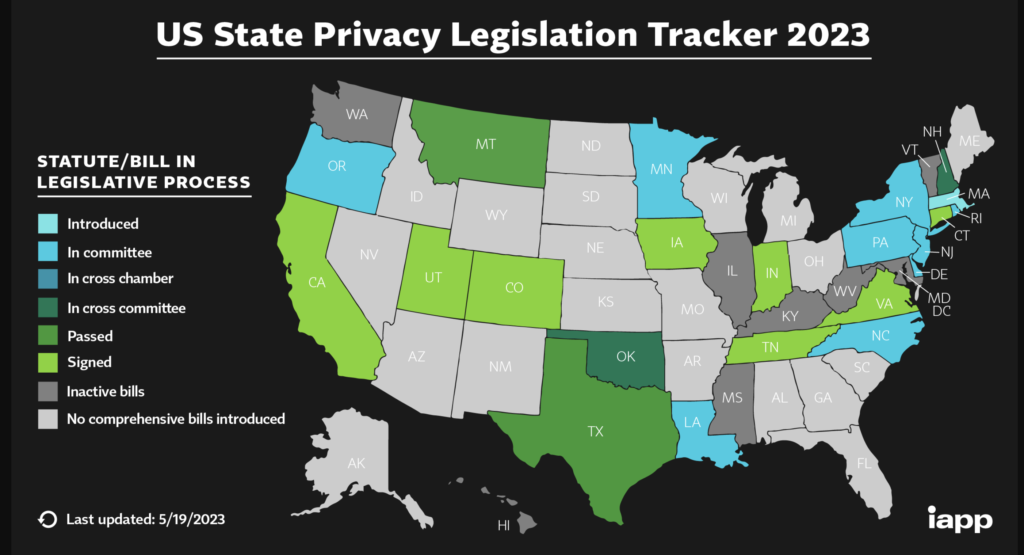
In our increasingly interconnected world, privacy has emerged as a critical concern for individuals and organizations alike. As technology advances and data becomes more abundant, protecting personal information and adhering to privacy regulations have become paramount. The year 2023 brings forth new challenges and opportunities in the realm of privacy. In this blog post, we will explore some of the key privacy trends that are shaping the landscape and discuss how individuals and businesses can navigate these changes effectively.
- Heightened Focus on Data Protection: Data breaches and privacy scandals have brought data protection to the forefront of public consciousness. In 2023, we can expect to see an intensified focus on safeguarding personal information. Organizations are investing in robust security measures and implementing stringent protocols to ensure the confidentiality and integrity of data. Encryption, multifactor authentication, and secure data storage practices will become commonplace as businesses strive to regain public trust.
- Strengthening of Privacy Regulations: Governments and regulatory bodies worldwide are taking a proactive stance on privacy issues. New regulations, such as the California Consumer Privacy Act (CCPA) and the General Data Protection Regulation (GDPR), have already transformed the privacy landscape. In 2023, we anticipate further expansion and enforcement of privacy regulations globally. Organizations must stay abreast of evolving legal requirements, adapt their data handling practices, and implement comprehensive privacy programs to comply with these regulations.
- Growing Importance of Privacy by Design: Privacy by Design, a concept that promotes embedding privacy considerations into the design and development of systems, is gaining prominence. In 2023, we will witness an increased emphasis on incorporating privacy features and controls by default. Organizations will prioritize data minimization, purpose limitation, and user consent mechanisms to ensure privacy is an integral part of their products and services from the outset. Privacy Impact Assessments (PIAs) will become standard practice to identify and mitigate privacy risks.
- Rise of Privacy-Enhancing Technologies: Advancements in technology are not only contributing to privacy concerns but also providing solutions to address them. Privacy-enhancing technologies (PETs) are gaining traction as valuable tools to protect personal information. Techniques like federated learning, homomorphic encryption, and differential privacy enable data analysis and processing while preserving individual privacy. As organizations seek innovative ways to balance data utility and privacy, PETs will play a crucial role in their strategies.
- Empowering Individuals with Privacy Rights: Individuals are becoming more aware of their privacy rights and demanding greater control over their personal information. In 2023, we can expect a rise in privacy-conscious consumers who actively exercise their rights, such as accessing, rectifying, and deleting their data. Organizations will need to provide transparent privacy policies, user-friendly consent mechanisms, and easy-to-use privacy preference centers to respect individual choices and build trust.
- Enhanced Transparency and Accountability: Transparency and accountability will continue to be key pillars of privacy practices in 2023. Organizations will be expected to provide clear and concise privacy notices, disclose data sharing practices, and be accountable for the data they collect. Data governance frameworks, privacy audits, and regular reporting will become standard procedures for demonstrating compliance and fostering trust among customers, partners, and regulators.
As privacy concerns grow and privacy regulations evolve, organizations must adapt their practices to protect personal information effectively. The trends highlighted above emphasize the importance of proactive measures, such as data protection, privacy by design, privacy-enhancing technologies, and individual empowerment. By embracing these trends and prioritizing privacy as a fundamental principle, organizations can build a solid foundation of trust with their customers and thrive in the privacy-focused landscape of 2023 and beyond.
